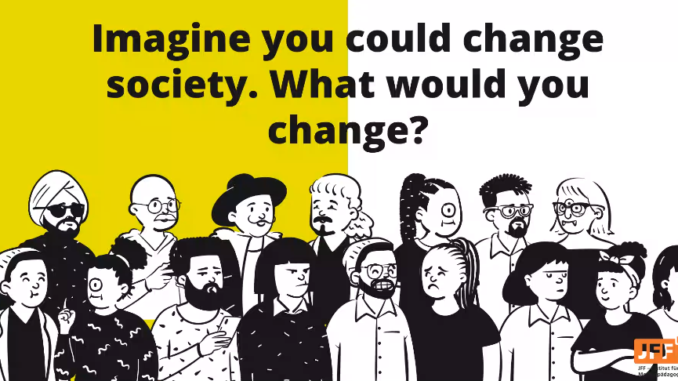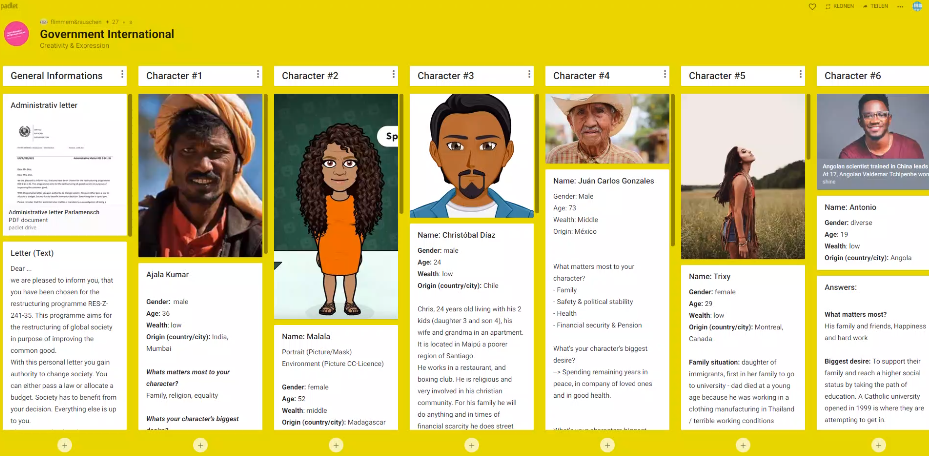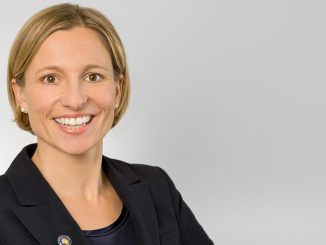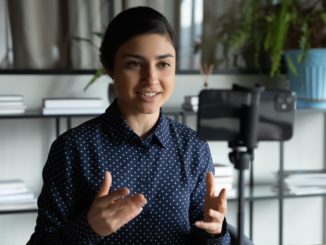
In mid-April, the MBS Explorer Days: Creativity & Expression, an initiative introduced in 2020 as part of improvements to the bachelor’s program in International Business , celebrated their premiere. The Bachelor’s students were invited to deal with a topic relevant to society as a whole and to try out new forms of expression in the process.
Using your smartphone or camera to record clips before editing them into a film; designing an attractive sign or poster with pens and paper or your laptop; recording a piece of music; creating an avatar with an animation program; making a podcast, or maybe rehearsing a play – it’s fair to say these are not the tools or forms of expression you would usually expect from business students. Nevertheless, engaging creatively with a socially and/or economically relevant topic is precisely the aim behind MBS Explorer Days: Creativity & Expression, an initiative introduced in 2020 as part of improvements to the bachelor’s program in International Business and implemented for the first time in mid-April.
Academic director Prof. Patricia Kraft explains the concept:
“The MBS Explorer Days: Creativity & Expression are designed to give students in their sixth semester the opportunity to engage intensively with MBS values one more time before they graduate by addressing a topic with implications for all of society in a responsible, innovative and creative way and then implementing their ideas directly.”
What laws can be used to achieve the SDG of ending world poverty?
The topic of this year’s MBS Explorer Days: Creativity & Expression was the United Nations’ Sustainable Development Goal 1: End poverty in all its forms everywhere. MBA and DBA coordinator Elena Lucchi, who also has extensive experience working with the UN, gave a keynote speech introducing students to the UN’s 17 Sustainable Development Goals. All UN member states adopted the SDGs in 2015 as a universal call to action with the aim of achieving sustainable economic, social and ecological development around the world by 2030. Lucchi explained that poverty has various socio-economic dimensions and is also the cause of many human rights and labor law violations. Using two examples from Honduras and Germany, she made clear how conflicts, climate change and the COVID-19 pandemic compound poverty. Lucchi showed that we do not have to travel far to find examples of poverty: instead, due to the multifaceted nature of poverty – which is not simply an inability to satisfy basic needs – we can find it right on our doorsteps.
Following this introduction to the topic, the floor was handed over to the media experts from the Media Center Munich (MZM) at the JFF – Institute for Media Education, who had been enlisted as collaboration partners for the MBS Explorer Days: Creativity & Expression. Nicole Rauch, Jonas Lutz and Thomas Kupser introduced the concept and scenario for the Government International simulation game, which the students would work on for the next one-and-a-half days. On behalf of a fictional United Nations, the students were tasked with contributing to societal change and writing laws to combat global poverty. The bachelor’s students met in various small groups to tackle this undertaking. Each team slipped into a character from a different country, including: a Chinese woman married off against her will and looking for work; a young father in Chile working restaurant jobs to feed his family, and a retired, affluent globetrotter from Denmark. On the one hand, this meant that the exercise included a variety of different protagonists; on the other hand, it made clear from the outset that the fight against poverty is different for each of us, depending on our circumstances.

Working in independent groups in different break-out rooms, the students first worked to gain insights into their character, looking at their living situation and the conditions in their country. Based on these insights, they ultimately developed a law that their protagonist would pass to combat poverty in line with the UN’s Sustainable Development Goal 1. However, the students were asked not only to address their character’s wellbeing but also to incorporate benefits to wider society and ensure their law had the greatest possible impact.
“Taking new perspectives on board is something our students will have to do throughout their future working lives. The world is becoming more complex and is increasingly interconnected, meaning that flexibility and the ability to get to grips with new areas, environments, standpoints and topics will be crucial core skills for those striving to succeed in the future world of work. This makes the simulation game an excellent exercise,”
said Prof. Patricia Kraft, explaining the relevance of the approach.
Pitching the creative media products on day two of the MBS Explorer Days: Expression & Creativity
On the first afternoon of the workshop, the students gained an overview of different media products and tools, learning useful tips and tricks they could use to present their characters and legislative proposals the following day. No constraints of any kind were placed on the students’ creativity during the task. After a further design phase, the remainder of the workshop’s second day was dedicated to the pitches. All 14 student groups presented their characters and draft laws to combat poverty using an array of methods and media products. These ranged from joint presentations accompanied by campaign posters and videos to flyers and Instagram stories that the characters would use to raise awareness of their issues, through to recorded speeches, (animated) films and entire talk shows featuring the characters arguing for their standpoint. The following video gives an overview of the teams’ efforts – so let it never be said that business students lack a sense of creativity or a talent for experimental forms of expression!
The MBS Explorer Days: Creativity & Expression undoubtedly provided a stimulating and novel learning experience for our bachelor’s students – both in terms of the subject matter and the media used. “It was a huge and sometimes even daunting task to design a law that would be suitable and practicable for as many countries as possible rather than just thinking about ourselves,” reported one group of their experience.
Another student commented: “With our character in Canada – one of the world’s most affluent countries – it proved difficult at first to think of a suitable law to combat poverty because we couldn’t simply target basic needs such as access to clean drinking water. We had to look beyond that.” However, once they identified a potential law and did a little research to break down some of the barriers, the students blossomed when it came to the media design work.

You are interested in business, want to pursue an international career and get to know the world?
The Bachelor’s program in International Business at Munich Business School is the perfect preparation for this challenge! The program offers you practice-oriented teaching, an integrated semester abroad, as well as different concentrations that can be freely selected according to your interests. See for yourself: Bachelor International Business



